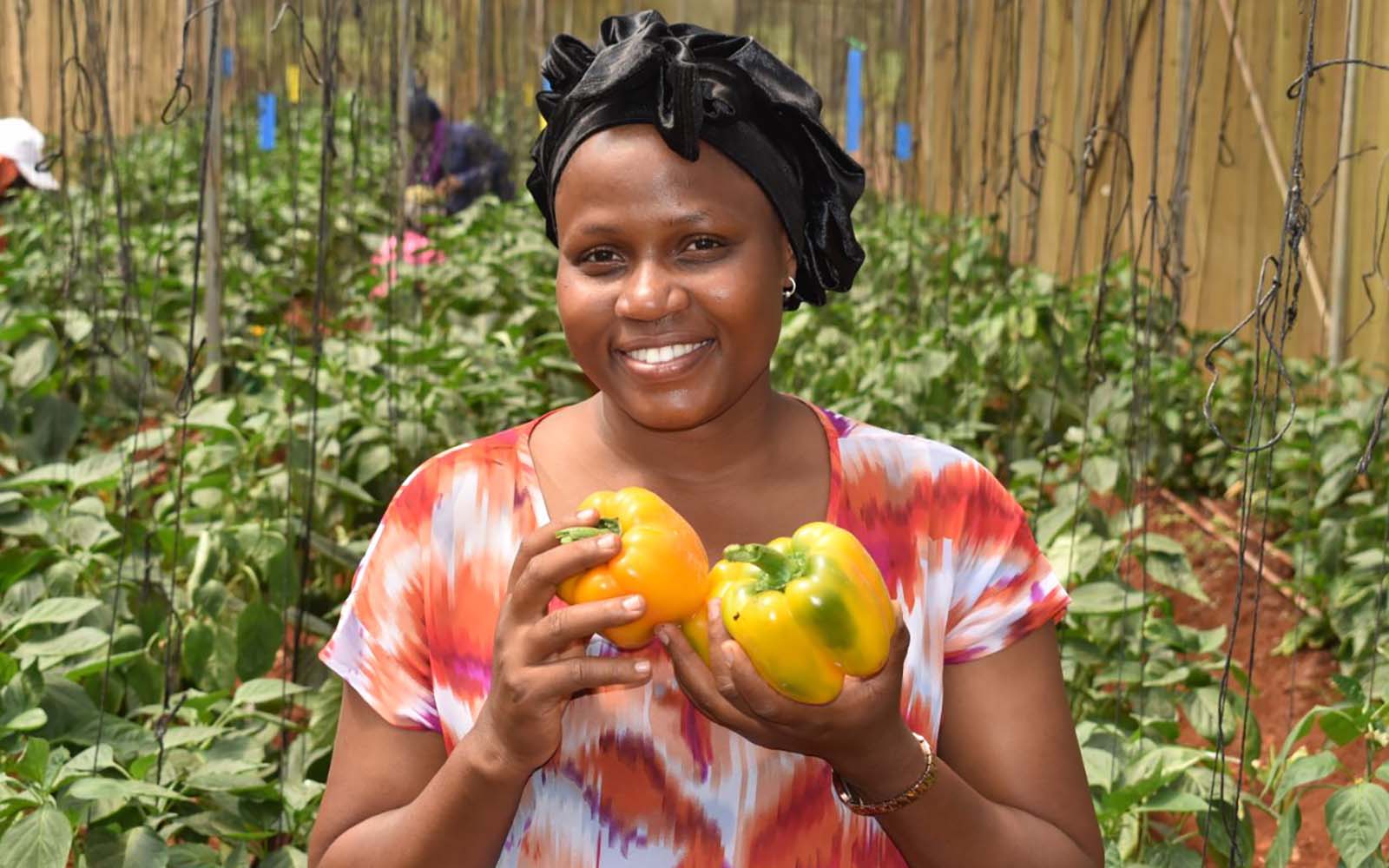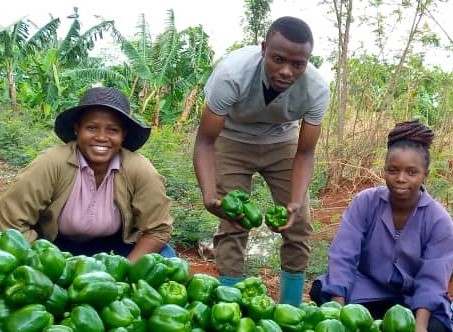Sowing seeds for future growth, improved livelihoods in Tanzania
Story

(Above photo: Volunteer Marcelina Lubuva, Tanzania, 2022. Photographer: Pevil Albert.)
The Kizimba Business Model engages women and youth in agriculture and agribusiness opportunities.
In Tanzania’s Morogoro region, volunteer Marcelina Lubuva has been teaching farming skills and good agricultural practices to participants in the Kizimba Business Model – a project facilitated by the Sokoine University Graduate Entrepreneurs Cooperative (SUGECO) that promotes opportunities for self-employment in agriculture and agribusiness for women and youth.
“Each person who learns these skills is like a seed sown that grows and flourishes,” she says. “I am proud of the work we are doing … the people who are building their expertise and skills bring this knowledge to their entire communities. They can reach optimal yields in their production processes, generate more profit and income, and improve livelihoods.”
Supported by Cuso International, the Kizimba Business Model (KBM) – with SUGECO’s oversight, as well as assistance from local government, academic, and private sector partners – provides women and youth with specially created plots of land to farm crops with strong market demand, such as mango, soya beans, and chili peppers. More than 1,000 hectares have been allotted to the project and the team has been testing the Habanero chili (Loleza variety) as a prototype for the project. The Habanero prototype will soon be transferred to the Kizimba setup, at Dakawa Farm in Mvomero, Morogoro.

The Kizimba Business Model provides women and youth with specially created plots of land to farm crops with strong market demand, such as mango, soya beans, and chili peppers. Photographer: Pevil Albert.
“The harvests have been incredible. From half a hectare of the Habanero chili, 180 baskets have been harvested each week,” says Marcelina. “Women and youth are paid by the basket, with three rounds of harvesting each week. The farming activity also creates employment for casual labourers, delivery people, and retailers in the markets, most of whom are women and youth.”
Marcelina, who grew up in a farming family in Moshi, in the Kilimanjaro region of Tanzania, and studied agriculture at Sokoine University, believes the project is critical for filling gaps in the agricultural sector in Tanzania. “More than 75 per cent of the population works in agriculture and there is often slow adoption of good agricultural practices and limited expertise to help famers,” she says.
“I like to see youth more engaged in agriculture and agribusiness in a professional way, and I’ve enjoyed seeing those I’m working with gain new skills and address challenges in horticulture.”
In addition to training farm supervisors and managing plots for the Kizimba project, Marcelina works with interns who are connected to SUGECO through the Tanzania Employment Services Agency (TaESA). She offers practical and theoretical knowledge on agricultural practices, farm management (transplanting, weeding, thinning), nursery management (seed sowing, grafting, and budding), pesticide application, pre- and post-harvesting techniques, use of fertilizers, and outdoor farming (open field) and indoor farming (greenhouses and screen houses).